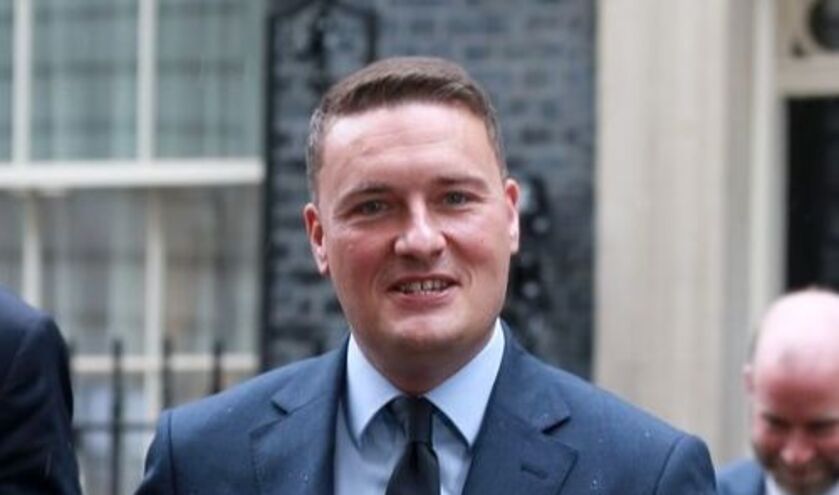Each of the areas will be allocated a programme lead who will work with existing local services to set up a new neighbourhood health service.
The leads, using general practice as the cornerstone, will draw together a range of professions to develop a ‘neighbourhood health team' consisting of community nurses, hospital doctors, social care workers, pharmacists, dentists, optometrists, paramedics, social prescribers, local government organisations and the voluntary sector.
GP leaders will be supported to deliver it with two new contracts from 2026. These will enable them to work over larger areas to deliver neighbourhood health services to the community.
Under the new voluntary neighbourhood health contracts, GPs can choose to be part of either a single neighbourhood or multi-neighbourhood provider. A single-neighbourhood will deliver enhanced services for around 50,000 people – while a multi-neighbourhood provider will serve around 250,000 people.
Neighbourhood health will benefit patients by providing end-to-end care and tailored support, looking beyond the condition at wider causes of health issues, helping to avoid unnecessary trips to hospital, prevent complications and avoid the frustration of being passed around the system.
They will initially focus on supporting people with long-term conditions, such as diabetes, arthritis, angina, high blood pressure, MS, or epilepsy - in areas with the highest deprivation. As the programme grows, it will expand to support other patients and priority cohorts.
The first wave is backed by £10m and will begin on 9 September 2025 with the ambition to scale up more services over the course of the next year.
The initial 43 sites are: South and West Hertfordshire (Decorum and Hertsmere), North East Essex, Ipswich and East Suffolk, Barking and Dagenham, Hillingdon, Lambeth and Southwark, Croydon, Walsall, Coventry, Shropshire, Leicestershire (West), Nottingham City, North East Lincolnshire, Stockton, Rotherham, Bradford and Craven (Bradford South, Keighley and Airedale), Sefton, Rochdale, Blackburn and Darwen, East Berkshire and Slough, Portsmouth, East Kent, East Surrey (Surrey Downs), Bristol (South Bristol), Cornwall and The Isles Of Scilly, Dorset Place (Weymouth), West Essex, West Suffolk, Kensington, Chelsea and Westminster, East Birmingham, Solihull, Herefordshire, Sunderland, Doncaster, Wakefield, Leeds (Hatch, South, East), St Helens, Stockport, Buckinghamshire (North, High Wycombe, Marlow Beaconsfield), East Sussex (Hastings and Rother), Woodspring, Morecambe Bay, Fenland, Peterborough and East and Peterborough.
Health and social care secretary, Wes Streeting, said: ‘We are building an NHS fit for the future, one that fits around peoples' lives and is an integral part of their community.
‘Neighbourhood health services fundamentally reimagine how the NHS works – bringing care closer to home while helping to tackle this nation's shameful health inequalities.
‘Through our Plan for Change, we will stop people from being bounced around a broken system as we get the health service back on its feet.'
Reaction
Ruth Rankine, primary care director and neighbourhood lead at the NHS Confederation, said: ‘This welcome announcement marks the start of a major and very important shift in how care is delivered, and we are delighted to see so many of our members as part of the first wave.
‘This programme provides a vital opportunity to build on the strengths of local partnerships, community assets, and frontline innovation and we look forward to supporting systems and neighbourhoods in sharing learning, scaling best practice, and ensuring that improvements are inclusive, sustainable, and driven by the voices of local people.'
Daniel Elkeles, chief executive, NHS Providers, said: ‘It's really positive that communities across England have been chosen to lead the way on neighbourhood health services. This is a pivotal moment as the NHS nationally embraces what the NHS locally has already started - transforming services to provide tailored healthcare to the people who need it most in their homes and local communities.
‘With the right funding the NHS and local partners will extend neighbourhood services even further, shifting care from hospitals to the community to deliver an NHS fit for the future.'
NHS Cheshire and Merseyside chief executive, Cathy Elliott, said: 'This is testament to the strength of the relationships between local health and care providers and our collective commitment to develop models of neighbourhood health which better support the communities we serve.
'We look forward to supporting Sefton and St Helens to lead the way in the development of neighbourhood health and will work with partners across Cheshire and Merseyside to ensure all learning and best practice is shared.'
Rachel Power, chief executive of Patients Association, said: ‘Tackling health inequalities through the locations of the first neighbourhood health services is a strategic opportunity to address the unjust experience many patients have of the health system because of where they live. Locating services in more convenient places for patients can mean earlier support, quicker diagnosis, and fewer barriers to accessing vital treatment.
‘We call these sites to begin by committing to genuine patient partnership by ensuring communities have meaningful roles in the design and delivery of services they are placed to serve, listening to local voices and shaping services around people's real needs. Only by working hand in hand with patients can these centres start to reduce inequalities and deliver lasting improvements in care.'
Vic Rayner, chief executive of National Care Forum, said: ‘It is crystal clear that this fundamental shift from acute to community services can only be achieved with social care at its heart. The skills and expertise of care workers and those working in the VCSE will be paramount in the ensuring that health and care is viewed through the lens of the person.
'For these pilots to support a meaningful widespread transformation, it must lay the foundations for how to commission, fund and develop the strategic partnerships that will shape the neighbourhoods of the future.'



